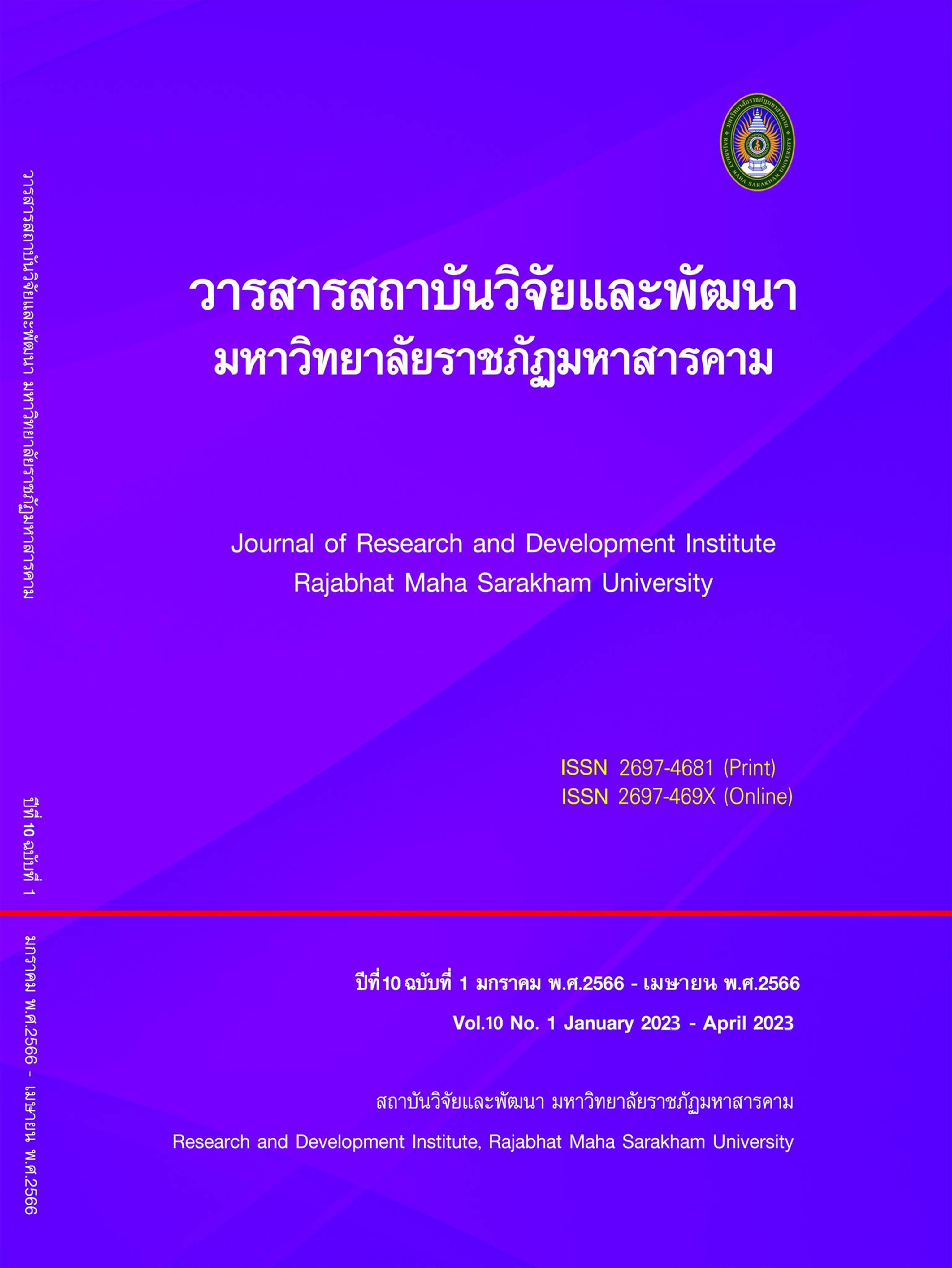Developing of basic scientific process skills by using Inquiry based Learning (5E) with games for grade 5 students
Keywords:
inquiry based learning (5E), Games, Basic scientific process skillsAbstract
The purpose of this research was to develop basic scientific process skills by using inquiry based learning (5E) with games with games. 70% of the students in grade 5 passed the criteria by applying the process of conducting an action research according to Kurt Lewin's concept. The target group was 8 grade 5 students. The research instruments were: 1. Lesson Plans using inquiry based learning (5E) with games. 2. A basic science process skills assessment form; and 3. An observation form for student learning behavior. Data were analyzed from the Basic Science Process Skills Assessment Form. by averaging and standard deviation by percentage against criteria The data obtained from the observation form of student learning behavior were analyzed, processed, compiled and presented in an essay format.
The results showed that all 8 students (100%) had score higher than the required scores on basic scientific process skills. Passed the criteria of 70% or more.
References
Ban Don Phueng Community School. (2021). Ban Don Phueng Community School Curriculum. Yasothon : Ban Don Phueng Community School Printing House.
Changsida, P. (2016). A study of learning achievement, problem solving ability. and psychology of Prathomsuksa 4 students from the knowledge-seeking learning management together with the Concept Map. Journal of Education Mahasarakham University, 10(1), 130-141.
Chusen, K. (2017). The use of games to develop scientific process skills. of Prathomsuksa 4 students at Wat Thai Talat Municipal School Uttaradit Province. Phitsanulok : Pibulsongkram Rajabhat University.
Incharoen, P. (2016). The development of science process skills by learning management. A 5-step search for knowledge with a graphical layout Learning Unit 3: Living things and the environment science learning group Grade 6. Maha Sarakham : Sakon Nakhon Rajabhat University.
Khaemanee, T. (2019). Teaching Science: Body of Knowledge for an Effective Learning Process. (23rd ed). Bangkok: Chulalongkorn University Press.
Ministry of Education. (2017). Indicators and core learning content. science learning group (Revised edition 2017) according to the Basic Education Core Curriculum 2008. Bangkok: Thailand Agricultural Cooperative Assembly Printing House.
Nuengchaloem, P. (2015). Science Learning in the 21st Century. Bangkok: Chulalongkorn University.
Sitham, Y. (2019). Science Process Skill Development and Learning Achievement. of grade 6 students on rocks and changes in the earth's crust By managing a 5-step knowledge-seeking learning process together with a graphical layout. Sakon Nakhon : Sakon Nakhon Rajabhat University.
Sukumthong, C. (2020). The development of a set of knowledge-seeking learning activities (5E) in conjunction with a science game on changing the world in elementary school. Songkhla : Thaksin University.
Suthinarakorn, W. (2019). Action Research: Research for Freedom and Creation. (3rd ed). Bangkok: Siam Review Publishing House.
Thipsing, A. (2016). Development of analytical thinking and scientific process skills on our bodies. by using cyclical learning management The quest for knowledge in 5 steps together with the six hats technique of Prathomsuksa 6 students. Sakon Nakhon : Sakon Nakhon Rajabhat University.
Downloads
Published
How to Cite
Issue
Section
License
Copyright (c) 2023 สรัญญา เพลินสมบัติ, กัญญาวดี แสงงาม

This work is licensed under a Creative Commons Attribution-NonCommercial-NoDerivatives 4.0 International License.
Articles that are published are copyrighted by the authors of the articles







